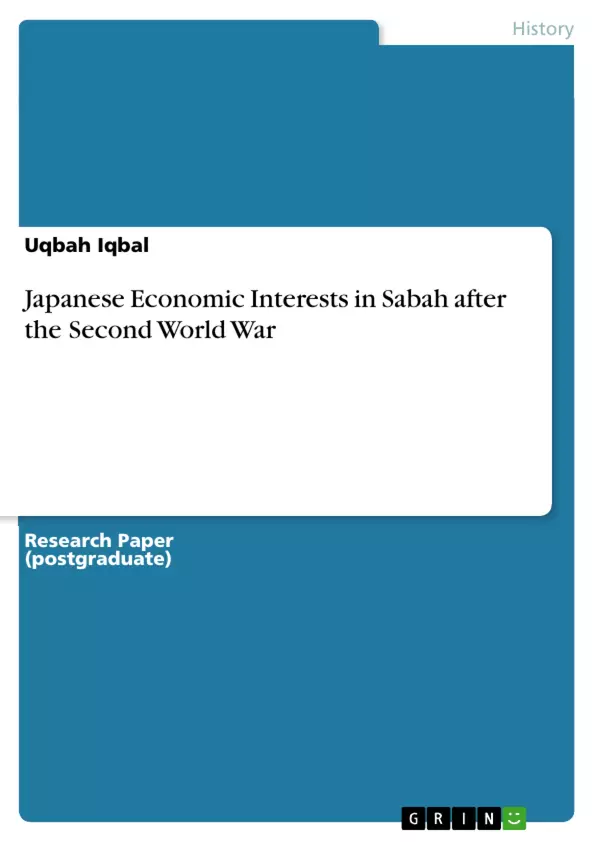The development of the Malaysian economy currently inherited from three previous levels, starting from the growth and rapid development level of natural resources industries from the mid 19th century until the year 1914, followed by a volatility or instability period of natural resources industries between the First and Second World War and last but not least the level of consolidation and rationalisation of natural resources industries together with a diversified economy after 1945.
Although Malaysia is a former British colony, the importance of Japan’s economy has contributed to the change of the foreign policy from the Pro-West Policy during the colonial and post-colonial era to the Look-to-The-East Policy during the administration of Tun Dr. Mahathir Mohamad. Therefore the main issue of this study is to unravel the importance of Japanese economic in North Borneo and Sabah after the Second World War. In terms of the methodology used, this research entails identifying and collecting several primary and secondary sources from the library, the National Archives of Malaysia and National Library of Singapore.
Inhaltsverzeichnis (Table of Contents)
- Abstract
- Introduction
- Japanese Economic Interests in North Borneo After the Second World War
- Japanese Economic Interests in North Borneo After the Second World War
- Japanese Economic Interests in Sabah After the Formation of Malaysia
- Conclusion
Zielsetzung und Themenschwerpunkte (Objectives and Key Themes)
This study explores the significance of Japanese economic interests in North Borneo and Sabah after the Second World War. It examines the evolution of Japanese involvement in the region, from the pre-independence period to the post-independence era, and analyzes the factors that have shaped this relationship. The study aims to shed light on the impact of Japanese economic activities on Sabah's development and to understand the motivations behind Japan's engagement in the region.
- The historical context of Japanese economic involvement in North Borneo and Sabah
- The role of Japan in the development of Sabah's economy after independence
- The motivations and strategies behind Japanese economic interests in the region
- The impact of Japanese economic activities on Sabah's socio-economic landscape
- The evolving nature of Japanese-Sabah economic relations over time
Zusammenfassung der Kapitel (Chapter Summaries)
The study begins by examining the historical context of Japanese economic involvement in North Borneo before the Second World War, drawing on existing research and primary sources. It then delves into the period after the Second World War, focusing on the development of Japanese economic interests in North Borneo and Sabah after the formation of Malaysia. The study analyzes the various forms of Japanese involvement, including investments, trade, technical assistance, and cultural exchanges. It explores the motivations behind Japanese economic activities, such as the desire to secure access to natural resources, to promote regional stability, and to strengthen diplomatic ties. The study also examines the impact of Japanese economic involvement on Sabah's development, considering both the positive and negative consequences. Finally, the study concludes by reflecting on the evolving nature of Japanese-Sabah economic relations and the future prospects for cooperation.
Schlüsselwörter (Keywords)
The study focuses on the keywords: Economic, Japan, North Borneo, Sabah, post-independence, development, investment, trade, technical assistance, cultural exchanges, motivations, impact, relations.
- Citar trabajo
- Uqbah Iqbal (Autor), 2015, Japanese Economic Interests in Sabah after the Second World War, Múnich, GRIN Verlag, https://www.grin.com/document/298463



